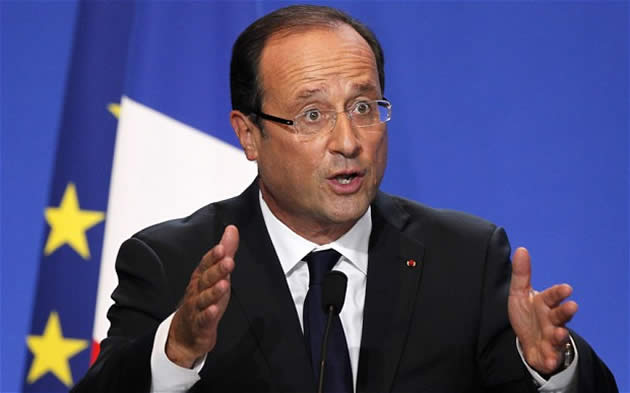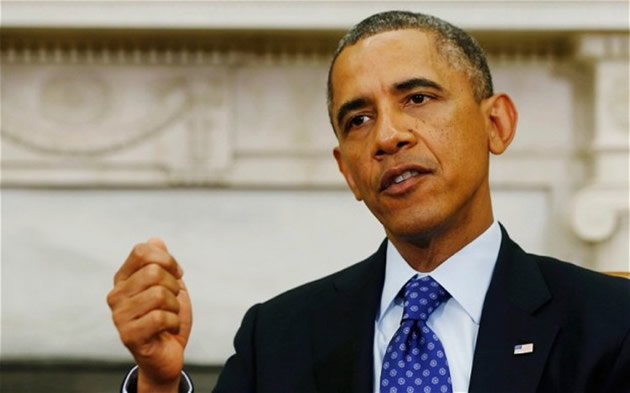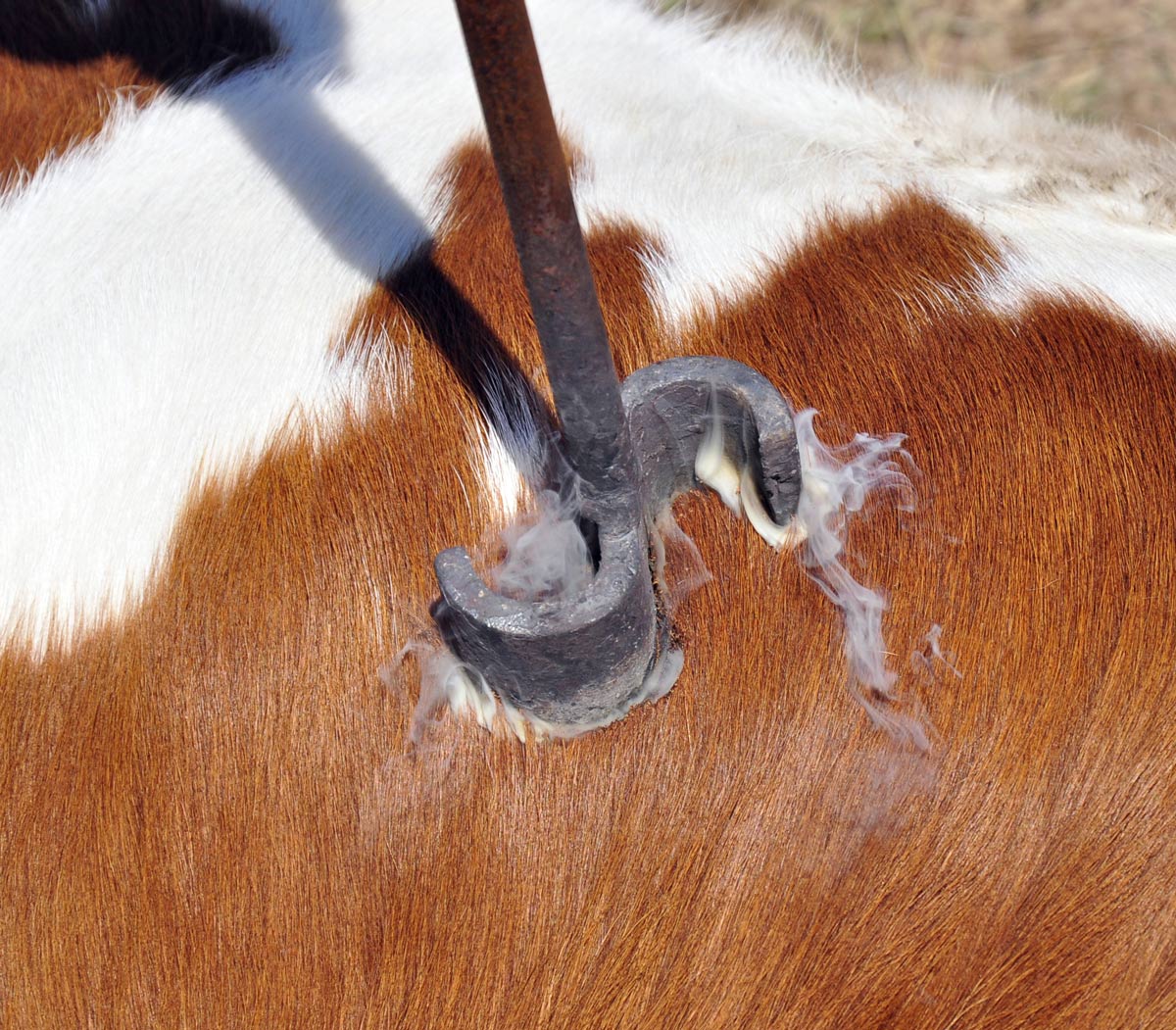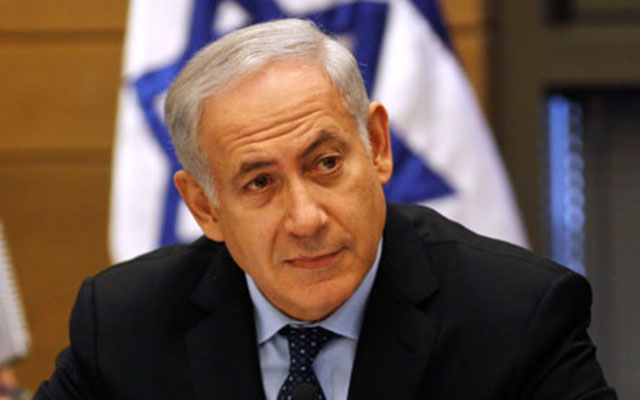Leave us as soon as possible, EU tells Britain

BRUSSELS. — A stunned EU yesterday urged Britain to leave as “soon as possible” amid fears the devastating blow to European unity could spark a chain reaction of further referendums. German Chancellor Angela Merkel and French President Francois Hollande led calls for the European Union to reform in order to survive a traumatic divorce with Britain following its vote to leave.
In a sign that the bloc wants to move on swiftly, EU chiefs told Britain in a strongly-worded joint statement to “give effect to this decision of the British people as soon as possible, however painful that process may be”.
The uncompromising stance came after Prime Minister David Cameron said he would resign and leave the negotiations for Britain’s departure from the 28-nation club to a successor who will be named by October.
European Commission chief Jean-Claude Juncker said he was “very sad” that Britain had voted to leave, but repeated that there would be “no renegotiation” of Britain’s membership.
Juncker, a former Luxembourg premier and strong federalist, said “no” when asked if the vote spelled the beginning of the end for a European Union that faces a huge rise in populist and eurosceptic parties.
Worried European leaders will hold a series of crisis talks in coming days, with Merkel saying she would host the leaders of France and Italy along with EU President Donald Tusk in Berlin on Monday to try to chart a reform plan.
“We take note of the British people’s decision with regret. There is no doubt that this is a blow to Europe and to the European unification process,” Merkel told reporters in Berlin.
With global markets in turmoil, she said it was important to “not draw quick and simple conclusions from the referendum in Great Britain, which would only further divide Europe.”
Hollande said the Brexit vote was a “grave test for Europe,” adding that the bloc “must show solidity and strength in its response to the economic and financial risks.”
Italian Prime Minister Matteo Renzi echoed calls for reform, saying “Europe is our house” and that “the house needs to be renovated, perhaps freshened up”.
Greek Prime Minister Alexis Tsipras, whose debt-hit country went through a referendum on its way to a bitterly-fought debt bailout, said the result could be a “wake-up call” for the EU to “change its policies”.
But he warned that it could also be “the start of a dangerous path backwards for our peoples.” EU chief and former Polish premier Tusk — who had earlier warned that a Leave vote could “end Western political civilisation” — put on a brave face, saying that “what does not kill you makes you stronger”.
He insisted that the bloc was “determined to keep our unity at 27” and said the remaining leaders would meet separately without Cameron on the sidelines of a summit of the full 28 in Brussels next week.
The biggest fear was of contagion, with immediate calls by far-right leaders in France and the Netherlands for their countries to hold their own votes on EU membership.
French far-right leader Marine Le Pen said the British result was a “victory for freedom” while Dutch anti-Islam MP Geert Wilders said “the Dutch people deserve a referendum as well.”
Donald Trump, the presumptive Republican US presidential nominee, also weighed in with his support while on a visit to Scotland, saying the vote for Brexit was a “fantastic thing,” evoking a “real parallel” with his own campaign.
European Parliament President Martin Schulz, said he was speaking to Merkel to avoid a “chain reaction” of eurosceptic success across Europe, adding that it would “absolutely not happen”.
Several European leaders expressed “sadness”, including Spanish Prime Minister Mariano Rajoy, whose country goes to the polls on Sunday in yet another test for Europe’s traditional politics.
Britain’s decision to leave also sparked reaction further afield.
Binali Yildirim, the prime minister of Turkey — whose EU membership bid and migration crisis deal was a key part of the pro-Brexit campaign — said he believed the EU “should look at these (Brexit) developments and review its future vision.”
Earlier this week, President Recep Tayyip Erdogan said Turkey could hold its own referendum on whether or not to continue its accession process.
Britain’s departure from the EU has also sparked wider fears for the international order, but UN Secretary General Ban Ki-moon said he expected the EU to remain a solid partner.
And NATO Secretary-General Jens Stoltenberg agreed that Britain would remain a “strong ally” of the US-led but largely European military alliance.
Meanwhile, Russian President Vladimir Putin said that the British prime minister’s claim that Moscow is interested in Brexit is “groundless,” adding that this statement was Cameron’s attempt to influence the vote.
Putin also said that Brexit is UK’s choice and Russia has never meddled in the issue.
“Statements made by the UK prime minister, Mr Cameron, before this plebiscite, before this referendum, on Russia’s stance, have no basis and never had. I believe that this is nothing more than a flawed attempt to influence the public opinion in his own country. As we see, it didn’t even have the desired result,” Putin said following a SCO summit.
He emphasised that claims that Moscow is interested in Britain’s exit from the European Union “show low level of political culture”.
“Prior to the vote in the United Kingdom and after the vote, I have already said that we have never interfered, never discussed this, we acted very properly in my opinion. Of course, we closely followed what was going on, but did not influence this process and did not even attempt to do so.”
“No one has the right to voice some sort of Russian opinion after the voting, I believe,” Putin said.
The Russian president added that the results of the British referendum will unlikely affect sanctions imposed by the European Union against Russia.
“As for the sanctions policy, I don’t think that this move (Brexit) will affect our relations with the EU in this regard. We were not the ones who started these sanctions, we just responded on actions toward our country.”
“I want to emphasise that if our partners decide to start a constructive dialogue on this issue (sanctions), we are ready for this, we want this and we will respond positively on a positive decision.”
Brexit will have consequences for both Europe and Russia, Putin said.
Putin believes that Britons voted to leave the EU because they “got tired of ‘feeding’ and financing weaker economies.”
“Nobody wants to feed and subsidise weaker economies, to support other states and entire nations, this is an obvious fact.”
Moreover “it seems that the (British) people are also dissatisfied with the decisions made in the sphere of defence as this problem has sharply deteriorated today amid massive migration flows,” Putin said.
Putin said that he expects no “global disaster” in the markets after the Brexit referendum. He added that markets will slump after Brexit, but will restore in some time.
“We will closely monitor (formal procedures on the British exit), analyse and seek to minimise any negative effects of this decision on our economy,” Putin said.
“We can see that if the markets and currencies have been hit now, that it (the so-called Brexit) will inevitably affect and has already affected the stock exchange indices, and hence the prices of traditional goods, but I am confident this will be corrected in the near future.” — AFP/Sputnik News.









Comments